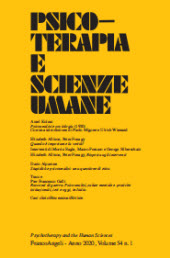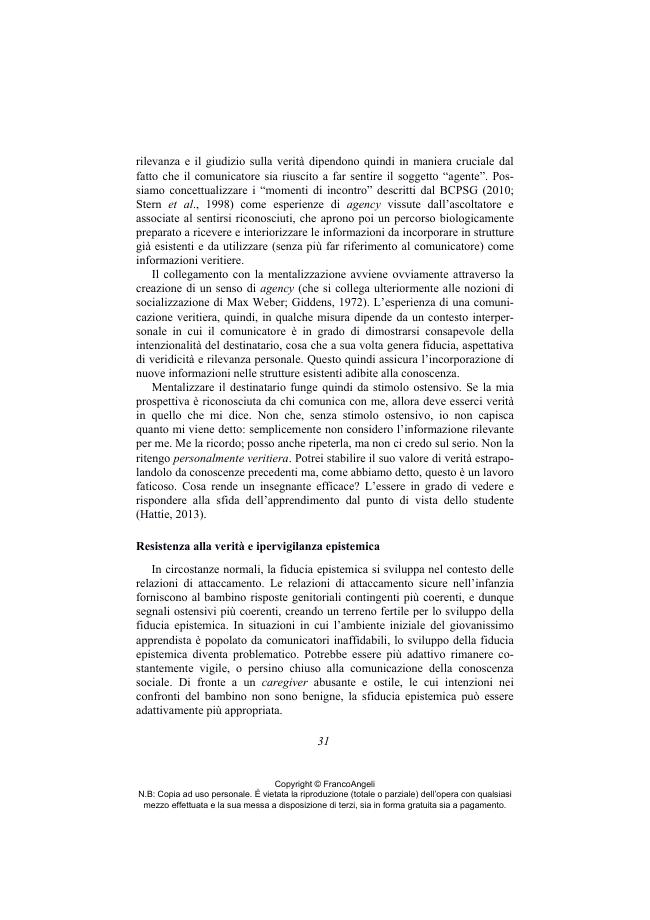Quando è importante la verità?
17-44 p.
L'esperienza di conoscere la verità e di sentirla riconosciuta all'interno di una psicoterapia non è un fine in sé, ma è importante perché la fiducia generata da questa esperienza ("fiducia epistemica", o fiducia in nuove conoscenze) permette al soggetto di aprirsi all'apprendimento dell'ambiente sociale e a trovare modi migliori per viverci. Vengono discusse le conseguenze di una mancanza di fiducia epistemica in termini di aumento di psicopatologia, e viene sottolineato il ruolo della mentalizzazione nella relazione terapeutica. Si suggerisce che sebbene il trattamento basato sulla mentalizzazione (Mentalization-Based Treatment [MBT]) costituisca una tecnica terapeutica specifica e manualizzata, la presenza di un terapeuta "mentalizzante" è parte essenziale di tutti gli interventi psicoterapeutici efficaci. [Testo dell'editore].
The experience of knowing and having the truth about oneself known in the context of therapy is not an end in itself; rather, it is important because the trust engendered by this experience ("epis-temic trust", or trust in new knowledge) opens one up to learning about one's social world and finding better ways to live in it. The consequences of a lack of epistemic trust in terms of psycho-pathology are discussed. The role of mentalizing in the therapeutic relationship is emphasized, and it is suggested that although the Mentalization-Based Treatment (MBT) developed by Anthony Bateman and Peter Fonagy may be a specific and particular form of practice, the "mentalizing therapist" is a universal constituent of effective psychotherapeutic interventions. [Publisher's text].
Is part of
Psicoterapia e scienze umane : LIV, 1, 2020-
Articles from the same issue (available individually)
-
Information
ISSN: 1972-5043
KEYWORDS
- Salute mentale, Conformismo, Società, Personalità, Natura umana
- Epistemic trust, Mentalization, Therapeutic action, Truth, Borderline personality disorder



